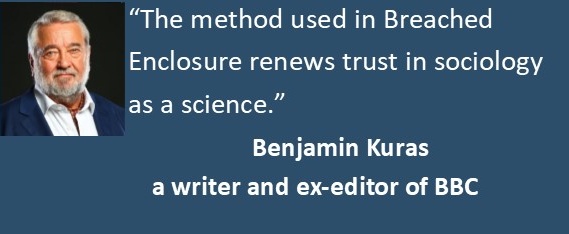The defenders of the nation state are faced with the task of defending and eventually restoring the institutions that shape the human beings. This is important so that people grow up for whom national life will be perfectly natural.This is difficult, among other things, because many of national institutions are in competition with the market products or programs of transnational bureaucracies.
On the other hand, we have to see that man cannot be entirely ‘enclosed’ in the nation state. Even in earlier times, when the nation was a relatively closed community, matters that transcended that community played a significant role in the life of the individual. Religion, for example. One could be in contact with a local pastor, but he played the role of a local branch of a global organization. Although most people did not travel, almost everyone knew someone who had lived abroad. However, the local and national element clearly prevailed. In some circumstances, this blend of the local, the national and the cosmopolitan can be more powerful than isolation because there is always a reminder of another exotic world.
…many of national institutions are in competition with the market products or programs of transnational bureaucracies.
Which issues and areas of life are to be covered? One possible answer is given by systems sociology, systems theory, structural functionalism or whatever else one wants to call it. It is a movement that once clearly dominated Western sociology, but is now taught only as a chapter in a history course. Nevertheless, some things have been worked out very thoroughly within this movement.
Take Talcott Parsons’ AGIL scheme. When we filter out the extremely complicated language, we arrive at the observation that a social system (which can be an individual, a group, or an entire nation state) must have four basic levels or components covered.
– The economic (the basic medium is money)
– The political (the basic medium is power)
– Relational (the basic medium is influence)
– The sphere of culture and symbols (the basic medium is values)
If, for example, there is an economic change, changes in culture and education will necessarily follow. This is regardless of the intentions or resolutions of the individual actors.
All of these form a whole, all components of which influence each other. If, for example, there is an economic change (e.g. the entry of foreign investors), changes in culture and education will necessarily follow. This is regardless of the intentions or resolutions of the individual actors. The system will force this, or rather it will force its tendency to move to a state that is consistent and balanced. But the reverse is also true (this is the difference with the Marxist view) – if there is a radical change in culture, value orientation and lifestyle, work and shopping habits will change, and the balance of power of economic players will change.


